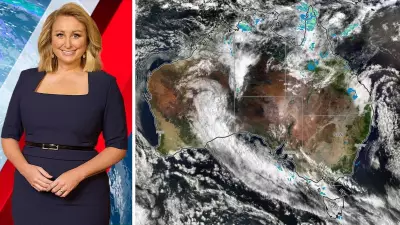
The Australian Greens have emerged as the dominant negotiators in a significant parliamentary battle over the nation's environmental protection laws, forcing the Labor government to accept substantial reforms to its proposed legislation.
Political Negotiations Yield Major Concessions
In a dramatic turn of events, Environment Minister Tanya Plibersek has been compelled to make significant changes to the government's Environment Protection and Biodiversity Conservation (EPBC) Act reform package following intense negotiations with the Greens. The minor party leveraged its balance-of-power position in the Senate to extract crucial environmental safeguards that the government had initially resisted.
The breakthrough came after the Greens threatened to join with the Coalition to block the legislation entirely, creating an unusual political alliance that would have derailed the government's environmental agenda. This pressure forced Minister Plibersek back to the negotiating table, where Greens environment spokeswoman Sarah Hanson-Young secured multiple key victories for environmental protection.
Key Reforms Won by the Greens
The negotiated package includes several landmark environmental protections that significantly strengthen the original government proposal. Most notably, the reforms will establish an independent Environment Protection Australia (EPA) with enhanced enforcement powers, including the ability to issue stop-work orders for projects violating environmental standards.
Another critical win for the Greens involves climate change considerations. The new laws will require decision-makers to consider how a project contributes to climate change when assessing its environmental impact. While falling short of the full 'climate trigger' the Greens had advocated for, this represents a substantial step toward integrating climate concerns into environmental approvals.
The legislation also addresses the contentious issue of regional forest agreements, which will now be subject to the national environmental standards being developed. This change potentially brings native forest logging under greater federal oversight, though the details remain to be finalized through the standards-setting process.
Political Implications and Future Challenges
The outcome demonstrates the Greens' growing effectiveness as political negotiators in the current parliamentary landscape. Greens leader Adam Bandt declared the agreement "a massive step forward for nature protection in this country", emphasizing that the reforms would deliver stronger environmental laws than Australia has seen in decades.
However, significant challenges remain. The legislation passed the Senate with a narrow 38-26 vote, highlighting the contentious nature of environmental law reform. The government must now develop the detailed national environmental standards that will give practical effect to the legislative framework, a process that will involve further negotiations and potential conflicts.
Environment groups have welcomed the reforms but caution that the real test will come in implementation. The effectiveness of the new EPA, the robustness of the environmental standards, and the government's willingness to use its new powers will ultimately determine whether these reforms deliver meaningful environmental protection.
This political showdown has reshaped Australia's environmental governance landscape, demonstrating how minority parties can influence significant policy outcomes through strategic negotiation in a finely balanced parliament.





